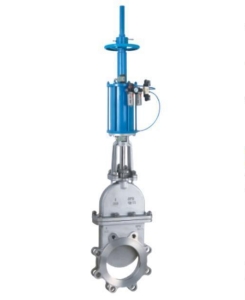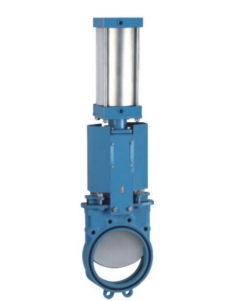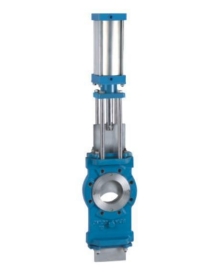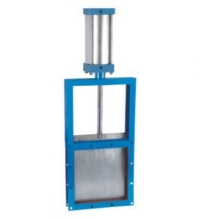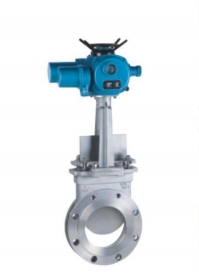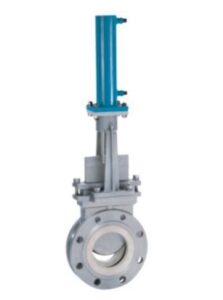
Even though sight glasses are inherently resistant to corrosion, they can still begin to erode under certain circumstances, particularly if the wrong material is specified for the application. As a result, corroding sight glasses become increasingly vulnerable to failure, which can be sudden, catastrophic, and damaging. In addition, it can harm your system, put workers at risk, and cause unplanned downtime. To help prevent a costly disaster, it’s essential to comprehend the risks of sight glass corrosion and failure and take the necessary steps to prepare for them.
A sight glass, also called a sight window or port is an essential tool for observing a closed system’s interior. Properly installed and spaced to your unique application, sight glass can be incredibly resistant to extreme temperatures, pressure fluctuations, and even corrosion. However, certain conditions can put sight glasses at an even greater risk for decay and damage. These include:
- Exposure to harsh chemicals.
- Superheated water contact.
- Inadequate or abrasive cleaning.
- Contact with coarse process media on a continuous basis.
- Temperatures rapidly rising/falling.
- Over-pressurization.
Aside from these hazards, your sight glass is at even greater risk of failure or corrosion if it is not correctly installed, handled correctly during operation, or designed for the wrong application. Glass that has been removed from service must never be reused, so using an old sight glass for a new operation can also cause issues. Even if an old sight glass had seen little use, the stresses and strains of the installation process could cause tiny, microscopic flaws in the material. While these invisible cracks won’t be seen with a visual inspection, they can significantly weaken the structural integrity of the glass, leaving it susceptible to breakage. Always inspect any sight glass for signs of wear before installation to minimize the chance of damage.
The vicious cycle of sight glass corrosion and breakage can be difficult to break. Corrosion weakens the glass, leaving it more susceptible to fractures and breaks, whereas a crack can significantly undermine the glass, leaving it open to more significant corrosion and weakening. This cycle can be challenging to break, but proper maintenance and repair can help prevent it from occurring in the first place.
The consequences of a failed sight glass can be catastrophic. When glass cracks at five miles per second, thick chunks and glass shards are ejected faster than the fastest fighter jets. This can easily damage your system, exposing it to the surrounding environment and rendering it inoperable. In addition, any product or materials inside your equipment can be ruined. Don’t let a failed sight glass lead to disaster – take the necessary steps to ensure your equipment and materials are safe.
How to Avoid Corrosion and Failure of Sight Glasses
Proper selection, installation, and maintenance of a sight glass are essential to safeguarding your system from potential failure. Choosing the right sight glass for your system is the first step to ensuring your safety. Installing the glass correctly and maintaining it with regular inspections are also paramount for avoiding dangerous sight glass breakdowns.
When selecting the correct type of glass for your project, soda lime glass is often the first choice. However, it has its limitations regarding temperature and pressure tolerance – tempered soda lime should not be used in applications above 300°F. Therefore, for applications requiring higher temperature and pressure specifications, it is choosing a different type of glass.
Thanks to its unique chemical and mechanical specifications, borosilicate glass is the go-to choice for chemical, biotech, and pharmaceutical processing. With temperature capabilities up to 572 °F, broad-spectrum corrosion resistance, low thermal expansion, and excellent transparency and visibility, borosilicate glass makes the perfect choice for any application. Whether you need to mix, measure, store, or transport chemicals, borosilicate glass is ideal for maximum performance.
For applications exceeding 572°F, process engineers rely on quartz and sapphire materials for their superior temperature resistance and durability. In addition, these materials provide reliable performance in extreme temperatures, making them ideal for industrial processes that require heat resistance.
Soda lime glass’s chemical degradation or corrosion occurs much more rapidly in slightly acidic (pH 6) and alkaline (pH 10) conditions. As a result, soda lime glass is 10 times more vulnerable to degradation than borosilicate glass—so taking the proper precautions to protect it from these environmental conditions is essential.
For more information on the physical properties of borosilicate glass, see to ASTM E438 “Standard Specification for Glasses used in Laboratory Apparatus” and DIN 7079. The former provides information about the glass’s optical, thermal, electrical, and mechanical properties, while the latter outlines whether the glass can withstand high temperatures, high pressure, and corrosive chemicals.
In addition to its impressive thermal and chemical durability, borosilicate glass is also renowned for its remarkable mechanical strength. With compression strength of up to 200 thousand pounds per square inch and tensile strength of more than 10x that of steel, borosilicate glass is one of the strongest of all glass materials.
The rapidly growing choice of mechanically pre-stressed glass can help you avoid the common problems associated with standard windows. With pre-stressed glass, you can avoid the common issues such as breakage, distortion, and fogging that often occur with standard windows, giving you greater peace of mind and improved visibility. Additionally, mechanically pre-stressed glass provides a higher level of safety and security.
A mechanically pre-stressed sight glass consists of a stainless-steel ring that applies a uniform, radial compression to a disc of borosilicate glass. This unique design ensures greater strength and durability, allowing the sight glass to withstand more complex impacts and greater stress forces than other sight glasses. The radial compression also prevents tensile stress from affecting the glass so you can rely on its performance during challenging conditions. Invest in this high-quality sight glass, and you’ll have a dependable, long-lasting solution.
Once you’ve selected the optimal design for your operation, double-check that the glass is thick enough to handle the pressure of your application. Failure to do so can result in glass breakage, risking your process. To avoid this, it’s essential to ensure the glass can handle the maximum internal pressure it will be subjected to.
When considering a sight glass window, the metal ring’s corrosion must be considered. Therefore, system designers typically specify the type of stainless steel required to handle harsh caustic or acidic process mediums. In some cases, the sight glass can be mounted so that the metal ring is not directly exposed to the process fluid – meaning that lower-cost steel may be used.
Proper training is required for anyone who works with or near a sight glass, regardless of the task or the environment. Even the slightest bump from a tool or scratch from a gloved hand can weaken the glass, so it’s essential to ensure that all personnel is adequately trained in best practices. Furthermore, harsh cleaning agents can cause premature corrosion, making it even more important to ensure anyone who is working on or near the sight glass is aware of the potential hazards. With the proper training, you can ensure that your sight glass system runs safely and effectively.
It’s incredibly simple to install, and the less contact you have with your sight glass, the better it will perform. In addition, regular cleaning and maintenance can help keep your sight glass functioning optimally and ensure years of reliable service.

